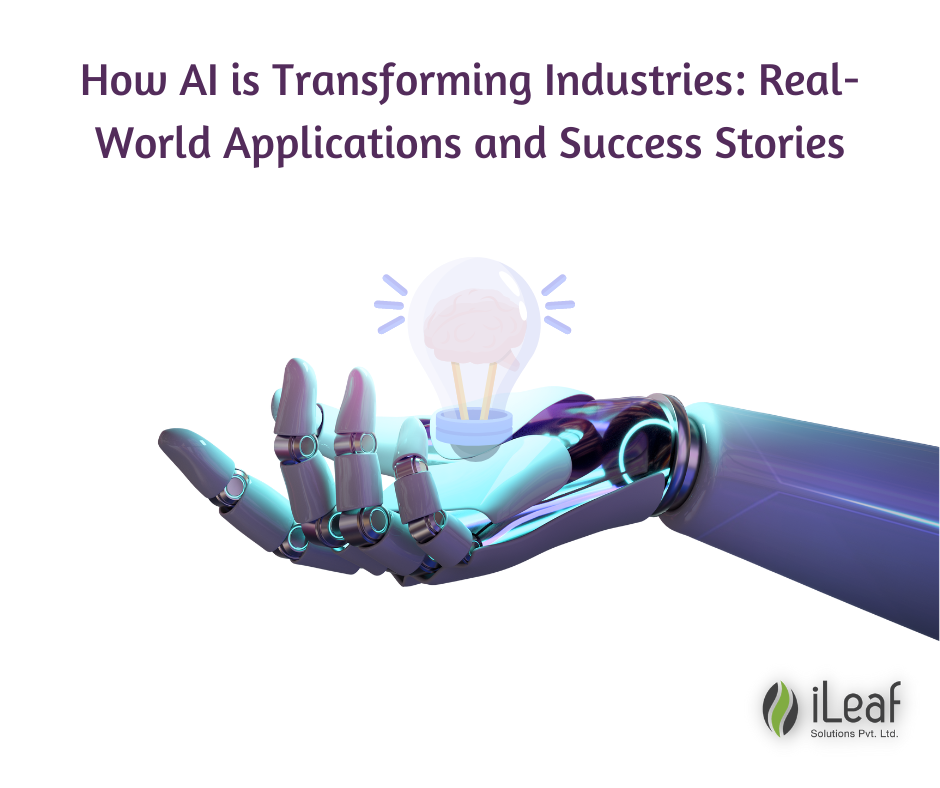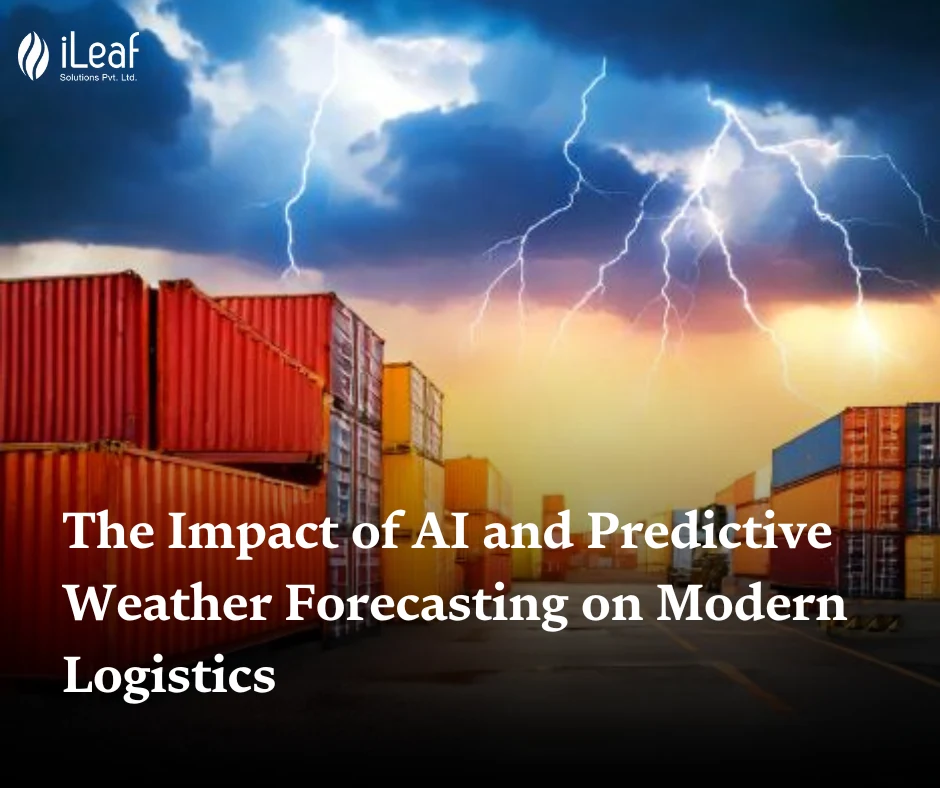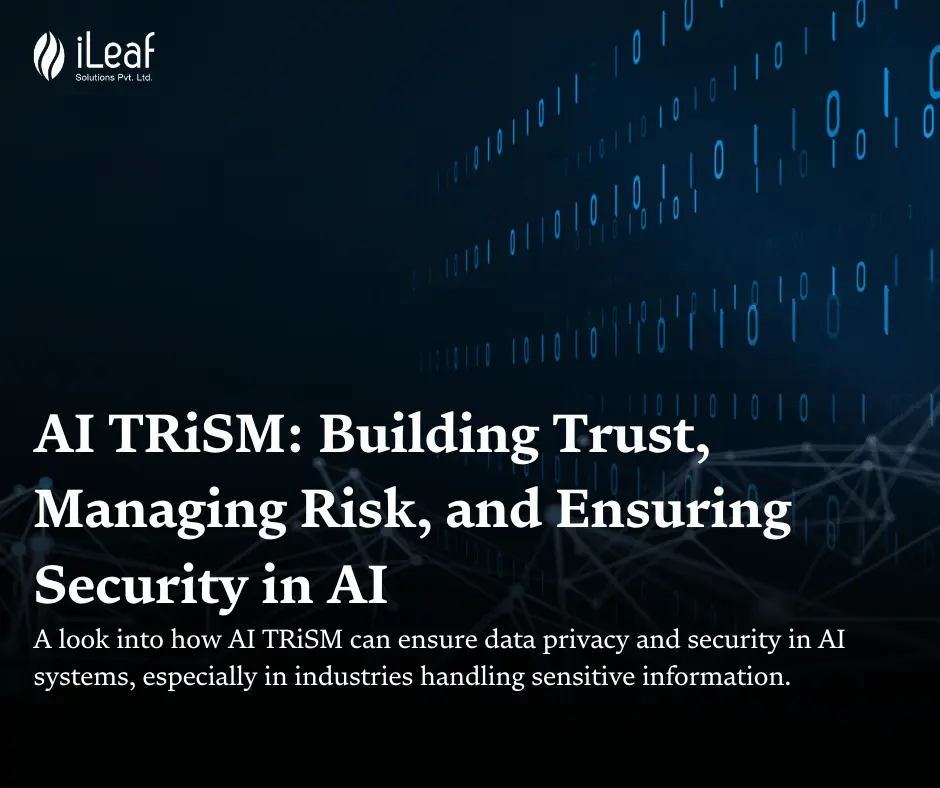How AI is Transforming Industries: Real-World Applications and Success Stories

Introduction
Artificial Intelligence (AI) has become an integral part of our daily lives, revolutionizing various industries and changing the way we interact with technology. From healthcare to finance, AI is driving innovation and efficiency, creating new opportunities and reshaping the business landscape. In this blog post, we will explore some real-world applications and success stories of AI across different sectors, highlighting the transformative power of this cutting-edge technology.
Healthcare
AI has made significant strides in the healthcare industry, improving diagnostics, treatment plans, and patient care. One notable success story is the use of AI-powered algorithms to analyze medical images, such as X-rays and MRIs, to detect diseases and abnormalities with remarkable accuracy. For instance, Google's DeepMind has developed an AI system that can diagnose eye diseases, such as diabetic retinopathy and age-related macular degeneration, with a 94% accuracy rate, matching or even surpassing human experts.
Another breakthrough in healthcare is the use of AI in drug discovery and development. Companies like Atomwise and Insilico Medicine are leveraging AI to analyze vast amounts of data, identify potential drug candidates, and predict their effectiveness, significantly reducing the time and cost of bringing new treatments to market.
Manufacturing
AI is revolutionizing the manufacturing industry by optimizing production processes, reducing waste, and enhancing quality control. One success story is the implementation of AI-powered predictive maintenance systems, which analyze data from sensors and equipment to predict potential failures and schedule maintenance accordingly. This approach minimizes downtime, extends the life of machinery, and reduces costs.
In addition, AI-driven robots are increasingly being used in manufacturing to perform tasks with precision and efficiency, working alongside human operators to improve productivity. For example, BMW has integrated AI-powered robots into its production lines, resulting in a 25% increase in efficiency.
Finance
The finance industry has embraced AI to streamline operations, enhance customer experiences, and mitigate risks. AI-powered chatbots, such as Bank of America's Erica, are being used to handle customer inquiries, provide personalized financial advice, and even execute transactions, offering a more convenient and efficient banking experience.
AI is also being used to detect and prevent fraud by analyzing transaction data for unusual patterns and flagging suspicious activities. For instance, PayPal employs AI algorithms to monitor millions of transactions daily, identifying and stopping fraudulent activities in real time.
Retail
AI is transforming the retail industry by offering personalized shopping experiences, optimizing supply chain management, and improving inventory management. One notable success story is Amazon's use of AI to provide personalized product recommendations based on customers' browsing and purchasing history, driving sales and customer satisfaction.
AI is also being used to optimize pricing strategies, taking into account factors such as demand, competition, and seasonality to determine the optimal price for products. Dynamic pricing algorithms, like those used by Uber and Airbnb, adjust prices in real-time to maximize revenue and ensure competitiveness.
Agriculture
AI is playing a crucial role in modernizing agriculture, helping farmers increase crop yields, reduce waste, and optimize resource management. AI-powered drones and sensors are being used to monitor crop health, identify pests and diseases, and assess soil conditions, enabling farmers to make data-driven decisions and apply targeted interventions.
One success story is the use of AI-driven precision agriculture techniques by John Deere, which has developed a suite of tools that analyze data from sensors, satellites, and drones to optimize planting, fertilization, and irrigation, resulting in higher crop yields and reduced environmental impact.
Transportation
AI is revolutionizing the transportation industry by improving safety, reducing congestion, and enhancing the overall travel experience. One success story is the use of AI-powered autonomous vehicles, which can navigate roads and highways without human intervention, reducing the risk of accidents and improving traffic flow. Companies like Waymo and Tesla are leading the way in developing self-driving cars, with the potential to transform the way we commute and travel.
AI is also being used to optimize logistics and supply chain management, enabling companies to track shipments, predict demand, and optimize delivery routes. For example, UPS has implemented an AI-powered routing system that analyzes data from sensors and traffic patterns to optimize delivery routes, reducing fuel consumption and improving delivery times.
Energy
AI is transforming the energy industry by optimizing resource management, reducing costs, and improving sustainability. One success story is the use of AI-powered predictive maintenance systems, which analyze data from sensors and equipment to predict potential failures and schedule maintenance accordingly. This approach minimizes downtime, extends the life of machinery, and reduces costs.
AI is also being used to optimize energy production and distribution, taking into account factors such as weather patterns, demand, and supply to ensure efficient and sustainable energy use. For instance, GE has developed an AI-powered system that analyzes data from wind turbines to optimize their performance, increasing energy output and reducing maintenance costs.
Conclusion
These real-world applications and success stories demonstrate the transformative power of AI across various industries. As AI continues to advance and become more accessible, we can expect to see even more innovative applications and solutions that drive efficiency, improve decision-making, and create new opportunities for growth. Embracing AI is no longer a luxury but a necessity for businesses and industries to remain competitive and thrive in the digital age.














